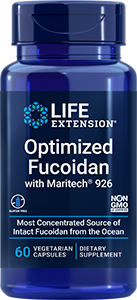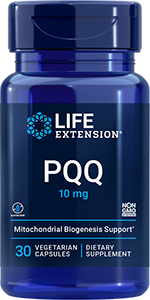Mechanism proposed that links decreased levels of vitamin D and serotonin in autism patients
Tuesday, March 4, 2014. On February 20, 2014, The FASEB Journal reported the finding of Rhonda Patrick, PhD, and Bruce N. Ames, PhD, of Children's Hospital Oakland Research Institute of a mechanism for vitamin D in maintaining adequate brain hormones that are needed to prevent autism spectrum disorders. Levels of 25-hydroxyvitamin D3, the precursor to the hormonally active form of the vitamin known as calcitriol, have been found to be lower in autistic individuals in comparison with those who do not have the condition.
The hormone serotonin, which is reduced in autistic brains, promotes normal social behavior and facilitates accurate assessment of emotional social cues—abilities that are lacking in autism. Drs Patrick and Ames discovered that calcitriol activates the transcription of tryptophan hydroxylase 2, a gene that converts the amino acid tryptophan to serotonin in the brain. Calcitriol simultaneously inhibits the gene responsible for another enzyme, tryptophan hydroxylase 1, resulting in a decrease in the production of serotonin in the gut and other locations where it can promote inflammation. The finding could explain the "serotonin anomaly" observed in autism, characterized by reduced brain serotonin and elevated blood levels of the hormone. It could also explain the greater incidence of the disorders in males, who have less of the serotonin-boosting hormone estrogen. Furthermore, mothers of autistic children are likelier than those of nonautistic children to have antibodies against fetal brain proteins, which could be the result of immune dysregulation caused by altered tryptophan metabolism due to insufficient vitamin D.
The authors also note that genes that encode factors involved with two peptide hormones, oxytocin and vasopressin (the first of which is decreased in the plasma of autistic children and the second whose receptor gene has variants linked to autism) contain vitamin D response elements.
"According to a 2006 NHANES report, 96% of Americans not taking vitamin and mineral supplements have insufficient vitamin D levels, whereas only 25% using supplements containing vitamin D have insufficient levels," they write. "The vitamin D-dependent regulatory mechanisms of serotonin synthesis and their relationship to the underlying causes of autism spectrum disorders suggest that risk of autism spectrum disorders may be decreased by a practical and affordable solution: adequate vitamin D supplementation during pregnancy and early childhood."
They add that deficient levels of omega-3 fatty acids have also been found in autistic individuals. "Dietary intervention with vitamin D, tryptophan, and omega-3 fatty acids would boost brain serotonin concentrations and help prevent and possibly ameliorate some of the symptoms associated with autism spectrum disorders without side effects," Drs Patrick and Ames suggest.
"Over 900 genes contain vitamin D response elements, many of which are important for cognitive function, suggesting that vitamin D supplementation has additional benefits outside the scope of this article," they conclude.
|
 |
What's Hot
A study described in the June 1, 2012 issue of Biological Psychiatry reveals a benefit for supplementing with N-acetylcysteine (NAC) in children with autism. In addition to reducing repetitive behavior, the amino acid decreased irritability, a symptom which can often necessitate antipsychotic drug treatment. "We're not talking about mild things: this is throwing, kicking, hitting, the child needing to be restrained," explained lead author Antonio Y. Hardan, MD who is an associate professor of psychiatry and behavioral sciences at Stanford University. "It can affect learning, vocational activities and the child's ability to participate in autism therapies."
Dr Hardan's team divided 31 autistic children between the ages of three and eleven to receive a placebo or 900 milligrams NAC daily for four weeks. This was followed by four weeks of NAC or a placebo administered twice daily and concluded with four weeks of either treatment three times per day. Aberrant behavior was assessed at the beginning of the study and at four, eight and twelve weeks.
A significant improvement in irritability was observed in children who received NAC compared to the placebo group, in addition to a reduction in repetitive and stereotyped behaviors. Although the effects documented in the current pilot trial were not as dramatic as those elicited by antipsychotics, the amino acid could prove to be a viable alternative therapy for some children with autism.
"Today, in 2012, we have no effective medication to treat repetitive behavior such as hand flapping or any other core features of autism," Dr Hardan noted.
"One of the reasons I wanted to do this trial was that NAC is being used by community practitioners who focus on alternative, nontraditional therapies," he added. "But there is no strong scientific evidence to support these interventions. Somebody needs to look at them." |

|
Latest Products |
 |
|
In recent years, scientific interest has intensified around fucoidan, a little-known molecule found primarily in edible seaweeds native to the Japanese diet. Nearly 900 published studies indicate its power to promote healthy immune function, cell-to-cell communication, and tissue maintenance.
Many experts now believe fucoidan is one of the key nutrients responsible for the exceptionally long, healthy lives enjoyed in Okinawa, Japan … which for decades boasted the world's highest concentration of centenarians (individuals at least a century old).
Maritech® 926 fucoidan is sourced from hand-harvested, wild seaweed from the pristine ocean waters of Patagonia. A cutting-edge water extraction process ensures fucoidan's delicate molecular structure is delivered intact, to provide the critical nutritional benefit of Undaria pinnatifida, the species of seaweed used in a majority of scientific fucoidan studies.
Maritech® 926 is a registered trademark of Marinova Pty Ltd. |
| |
 |
|
The enormous amount of energy generated within the mitochondria exposes them to constant free radical activity. The resulting mitochondrial decay is a hallmark of aging. PQQ protects and augments delicate mitochondrial structures to promote youthful cellular function in three distinct ways:
- Antioxidant power. Like CoQ10, PQQ is a highly potent antioxidant. Its extraordinary molecular stability enables it to facilitate thousands of biochemical reactions in the mitochondria without breaking down, for maximum antioxidant and bioenergetic support.
- Favorably modulates gene expression. PQQ activates genes that promote formation of new mitochondria — and beneficially interacts with genes directly involved in mitochondrial health. These same genes also support healthy body weight, normal fat and sugar metabolism, and youthful cellular proliferation.
- Mitochondrial defense. PQQ's antioxidant potency and favorable gene expression profile act to support mitochondrial defense.
BioPQQ® is a registered trademark of MGC (Japan).
|
|
 |
Related Articles
|
|











